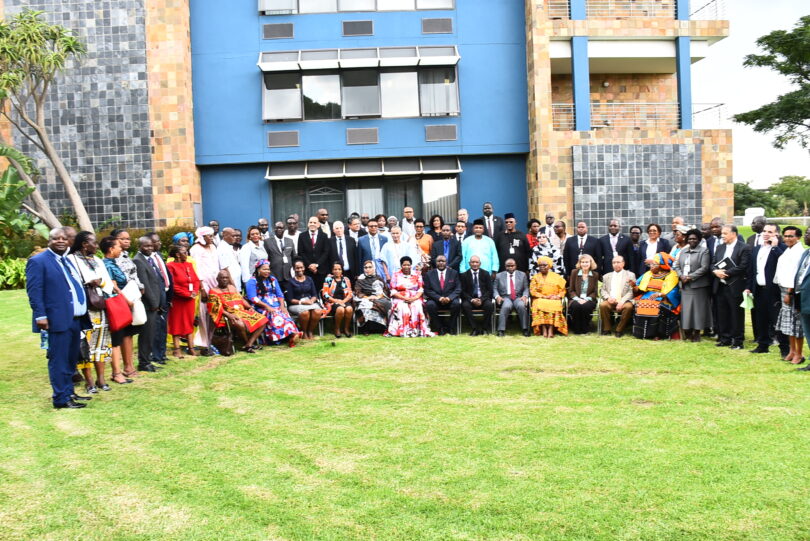|
Getting your Trinity Audio player ready...
|
The 3rd Ordinary Session of the Sixth Parliament of the Pan-African Parliament (PAP) will get underway from 24 June to 5 July 2024 in Midrand, South Africa under the African Union (AU) theme for 2024: “Educate an African Fit for the 21st Century: Building Resilient Education Systems for Increased Access to Inclusive, Lifelong, Quality, and Relevant Learning in Africa.”
Despite significant progress in access, completion, and quality of basic education in Africa over the past two decades, disparities persist both within and between countries. Learning achievement remains low in most nations. Girls, children from the poorest backgrounds, children with disabilities, and forcibly displaced children continue to face significant challenges in realizing their right to education.
On June 26, 2024, a dedicated seminar will be held involving the Department of Education, Science, Technology, and Innovation (ESTI) of the African Union Commission, along with other AU institutions, academia, civil society, and partners. Members of the Continental Parliament will exercise their oversight function by assessing the progress made in education, as well as identifying the challenges and gaps that need to be addressed, particularly in light of the compounded effects of the COVID-19 pandemic on education systems across the continent. The Pan-African Parliament will also deliberate on the harmonization and coordination of Member States’ legislation to intensify efforts towards bridging the gaps and achieving education-related objectives in Africa, in line with the aspirations of Agenda 2063.
“PAP plays a critical role in ensuring that AU policies and treaties are translated into national legislation and enforced by member states. The Parliament thus fulfills its mandate within the AU governance system by representing and providing an interface between the people of Africa and AU organs. The 3rd Ordinary Session of our Sixth Parliament will therefore provide an opportunity to support the AU’s efforts toward achieving the Continental Education Strategy for Africa 2016 to 2025, as well as the education-related targets of the Sustainable Development Goals, particularly SDG 4,” said Hon. Chief Fortune Charumbira, President of the Pan-African Parliament.
In addition to the activities of the Plenary, the upcoming Ordinary Session will include meetings of the 11 Permanent Committees of Parliament, which will prepare and finalise reports in line with their specific thematic areas. The Committees are the engine House of the Pan-African Parliament as they enable it to perform its core oversight, advisory, and consultative functions. The functions of the Permanent Committees correspond to those of the AU Specialised Technical Committees.
New members of the Pan-African Parliament are expected to be sworn in following elections in several AU Member States and rotation within delegations. Other key deliberations expected to take place throughout the two-week Ordinary Session include:
- Presentations and debates on the progress in the implementation of the AfCFTA and continental integration.
- Presentations and debates on Agenda 2063 and its relation to the
- Presentations and debates on the Report on Advancing Free Movement in
- Presentations and debates on peace and security in Africa, including a presentation on the African Union Common Position on UN Security Council Reforms.
- Presentations and debates on the consultations regarding the zero draft of the revised OAU Convention for the elimination of mercenaries in Africa.
- Presentation and debates on “The Scourge of Drug and Substance Abuse as an Impediment to Inclusive, Lifelong, Quality and Relevant Learning in Africa.”
- Presentations and debates on APRM country reports and governance
- An update by the Government of South Africa on the court case filed by South Africa against
The Pan-African Parliament serves as a platform for representatives from all African states to engage in discussions and decision-making on the continent’s challenges. To fulfill its mandate, the Parliament collaborates with Regional Economic Communities, regional and national parliamentary bodies, and civil society organizations. This collaboration aims to raise awareness about AU legal instruments and decisions and to mobilize member states for the ratification, domestication, and implementation of AU objectives, policies, and instruments.
SOURCE: PAN AFRICAN PARLIAMENT






